Sales rates are 25% below normal, and with low household formation and a lack of equity in potential move-up households, transaction volumes will remain low for the foreseeable future.
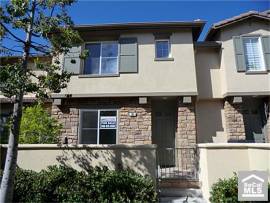
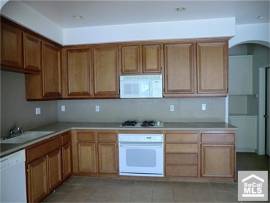
Irvine Home Address … 65 SAPPHIRE Irvine, CA 92602
Resale Home Price …… $429,900

Just move on up
and keep on wishing
Remember your dreams
are your only schemes
Curtis Mayfield — Move On Up
Everyone want to move up to better housing accommodations. Years ago I toured the Tijuana subdivisions of URBI. One of the homes was a 288 SF single family detached home. When I asked one of our guides who bought such a place, he beamed with pride and said they were generally people moving out of shanties. They were thankful to have working plumbing, solid walls, and climate control. That tiny home was a huge improvement over what they moved out of.
My wife recently had a conversation with a woman who was lamenting her plight. Her family was outgrowing their Shady Canyon home. With three children, their 4.000 SF 5 bedroom house no longer met their needs. She wasn't bragging or being pretentious, she was relaying the truth of her situation as she saw it. 
No matter your station in life, it's human nature to want more. Thus, a move-up buyer is a large component of any healthy real estate market.
Move-up markets need equity and wage growth
A move-up market requires two things in order to function: equity and increasing incomes. Neither is present in today's housing market, and there are few glimmers of hope on the horizon.
In the real world, most first-time homebuyers use an FHA loan and buy a low-cost property. The reason for this is simple: it takes too long to save 20% for a down payment on a conventional loan. First-time homebuyers use FHA loans because the 3.5% down payment is within reach. Further, once these buyers are in a property, they simple wait five or ten years for the wage-based appreciation to magically give them 20% to 30% equity in a property to use on their move-up purchase.
Once the owner has enough equity to get a closing check large enough to fund a 20% down payment on a move-up property, they go shopping. Since this is usually quite some time after buying their FHA financed property, it's likely the household wage earners are making more money. They take their larger family income and their 20% down payment and buy a move up property. At least that's how it used to work.
Notice the scenario above requires both appreciation to create equity and increasing income to finance a larger loan balance. If either of those conditions is missing, the move-up market suffers because fewer buyers are active.
So think about today's market. We are creeping out of a deep and prolonged recession characterized by persistently high unemployment. Incomes are down, not up. Even if buyers had the equity, they don't have the income growth also necessary to push buyers up the property ladder. If not for historically low interest rates, loan balances would be contracting with the declining wages experienced by many during the recession, particularly those in real estate related fields.
Also, prices have crashed, particularly for low-end properties typically purchased by FHA buyers. Nobody purchasing low-end properties with FHA loans over the last decade has accumulated any move up equity, and prices are still going down. That problem alone explains much of the ongoing weakness in the move-up market. In fact, I argue that the lack of equity at the bottom of the housing ladder is largely responsible for the weakness in pricing and volume at higher price points.
The future of move-up markets
Many housing pundits believe the market will strengthen from the top down. This view is not correct. The high end of the market will bottom last because it will experience a persistent lack of available buyers. If there are fewer move-up buyers, there will be less buying pressure, and since we know there are plenty of distressed properties from the plethora of overextended borrowers struggling or squatting in high-end homes, there will be no shortage of supply.
Lenders have been successful so far at slowly releasing high end homes to the market to keep the decline orderly. Let's assume that practice will continue. Due to the low demand, there will be an ongoing imbalance with supply and demand, and prices will slowly creep downward as banks are forced to take slightly lower prices than recent comps in order to liquidate. Like slowly removing a band-aid, the pain gets stretched out over a much longer period of time — but it is still painful.
Banks will release product slowly because they need to get their cash back out of these properties. If a big bank like BofA gets really desperate, they might increase the pace of their liquidations and push prices lower quicker, but if they don't, prices will drift lower slowly as the inevitable liquidations run their course.
Lenders have this fantasy that they can slowly release product into a rising market and obtain a better recovery. It isn't going to happen because there is simply too much product. For example, the Irvine Company and other new home builders generally account for about 15% of sales. At that rate, they can obtain higher prices and not disrupt the market. Right now, distressed sales by lenders account for 30% to 40% of the monthly sales volumes, and they have a backlog which will take a decade to clear out. If they try to reduce their sales volumes to be only 15% of sales, they will be selling REO forever.
In my opinion, we will see the low end of the market bottom in the next year or two. There will be a multi-year gap between when the low end bottoms and when the high end bottoms due to the lack of a move up market. It isn't until those who bought near the bottom at the low end have enough equity to move up to the next rung on the property ladder that each subsequent rung will bottom out. In other words, the bottom process will take a long time, and the high end will be the last to experience it.

Home price index edges up
The 0.2% bump in August in the Standard & Poor's/Case-Shiller index of 20 metropolitan areas is the fifth straight monthly increase. But a sustained improvement in housing may be hard to achieve in the months to come.
By Alejandro Lazo, Los Angeles Times — October 25, 2011, 9:20 p.m.
Providing a ray of hope for the beleaguered housing market, a closely watched index of home prices in major U.S. cities nudged upward in August, marking the end of what is typically the busiest sales season of the year.
Home prices have risen for five months in a row, but whether the spring and summer gains will prove lasting is an open question. Sustained improvement in housing may be hard to achieve in the months to come, experts said, if the nation's foreclosure machinery picks up momentum and employers remain reluctant to hire.
“We will probably see a reemergence of the seasonal dip in most markets, quite frankly, including California,” said Thomas A. Lawler, founder of research firm Lawler Economic & Housing Consulting.
Yes, the seasonal pattern will spell then end of rising index prices. I have repeatedly predicted a welcome decline this fall and winter.
The Standard & Poor's/Case-Shiller index of 20 metropolitan areas rose a meager 0.2% from July to August, an uptick many analysts noted as probably seasonal in nature and influenced by the decline in foreclosed properties as a share of the total number of homes sold.
Comparing the August reading with the same month a year earlier, the index fell 3.8%, a drop economists viewed positively because it was one of the slowest rates of year-over-year decline registered by the index all year.
Prices falling 3.8% is a positive? Well, I think so, but not because I want to see prices go back up. It's positive because it's a sign houses are becoming more affordable to the average person.
Christopher Thornberg, principal of Beacon Economics, said other home price indicators point to two trends developing in the nation's housing market: Values are declining for homes in distress — those properties that are either foreclosures or cases where the homeowners are delinquent on their mortgages — but other homes are fetching higher prices.
These two divergent forces are flattening out overall market values, he said. The main source of sales sluggishness is the scarcity of potential move-up buyers with equity in their homes.
“The biggest problem is not credit, it is not confidence, it is equity,” Thornberg said. “No equity, no move-up buyer; no move-up buyer, you get a slow market.“
Chris Thornberg is correct. The lack of equity is weighing down the market by reducing the number of move-up transactions.
But David M. Blitzer, chairman of the index committee at S&P Indices, said he sees “a modest glimmer of hope” in improvements in some aspects of the data.
I do get tired of every comment by every person in every news story being slanted to the point of view of loan owners. I find more than a modest glimmer of hope that prices will get even more affordable when I see how far prices have already come down, the downward price momentum, and the lack of demand at current price points.
Prices rose in August for 10 of the index's 20 metro areas compared with July, and prices fell in the other 10 cities.
California cities stumbled. Home prices in Los Angeles fell 0.4% over the previous month, San Diego prices declined 0.2% and San Francisco saw a 0.1% drop.
Atlanta experienced the biggest decline, down 2.4%. Las Vegas fell 0.3% and Phoenix was down 0.1%.
Prices fell more in Las Angeles than they did in Las Vegas last month. Which market do you think is closer to the bottom?
The Midwest has made gains in home prices in recent months, and Chicago and Detroit were both up 1.4% over July. Washington has fared better than other regions and gained 1.6%.
Earlier this year, the 20-city index dropped below its previous bottom, hit in April 2009, confirming a double dip in prices, but has come up above that level since. Some economists predict a renewed decline in prices in fall and winter, typically slower periods for the market.
Economists have had trouble pinpointing the source of the recent rise in prices.
Home values often rise in the spring and summer months because families more actively shop for houses so they can complete moves before the start of the new school year. But the number of foreclosed homes for sale also has been dwindling because foreclosure processing by the big banks has slowed down as a result of investigations into their practices.
“Prices just stabilized earlier in the year because of foreclosure-gate last year, where the lenders stopped foreclosing on so many homes to get their books back in order,” said Patrick Newport, an economist with IHS Global Insight. “Now they are ramping up.”
 Yes, lenders are ramping up. Reports about the declines in foreclosures usually omit the reason foreclosures declined. The implication is that lenders must have run out of people to foreclose on, so the foreclosure cleansing must be nearly over. That was never the case. The price pressure from distressed properties will not be relieved until delinquency rates are back down to historic norms and the shadow inventory is cleaned out. That process will take years.
Yes, lenders are ramping up. Reports about the declines in foreclosures usually omit the reason foreclosures declined. The implication is that lenders must have run out of people to foreclose on, so the foreclosure cleansing must be nearly over. That was never the case. The price pressure from distressed properties will not be relieved until delinquency rates are back down to historic norms and the shadow inventory is cleaned out. That process will take years.
But Lawler disagreed, saying that the recent increase in the number of notices of default, the first formal stage of the foreclosure process, was mostly due to activity by Bank of America. There has yet to be a significant uptick in home repossessions by banks.
“We have seen that a few banks have started to accelerate the foreclosure process somewhat, but we haven't really seen it translate into actual repossession of homes,” he said. “I don't think we have seen immense signs that banks have re-accelerated the process.”
What does Mr. Lawler think BofA is doing then? Are they issuing all these NODs just for giggles? Just because the NODs have not been seasoned for 90 days so they can become Notices of trustee sale (NOTs) and ultimately foreclosure does not mean that they won't. BofA and other banks are clearly setting out to liquidate their shadow inventory. Once these properties are REO, they may have second thoughts about how quickly they dispose of these properties, but their recent actions show they are intent on repossessing these properties.

20% down the drain
In any market crash, the weakest hands give up their positions first, and the strongest hands give up last. During 2007 and 2008, many of my property profiles were borrowers who used 100% financing, Option ARMs, or were dependant upon Ponzi borrowing to survive. When conditions became even slightly adverse, they walked away. Over time, we saw fewer and fewer of those borrowers, and we started to see the people who put 5% or 10% down.
Now that the decline has dragged on for 5 years and prices are over 30% down from the peak and still falling, we are starting to see the people who put 20% down give up and walk away. The former owner of today's featured property paid $598,000, and he put $119,400 down. It went back to the bank on 3/11/2011. The former owner's substantial down payment is lost.
Larry Roberts and Shevy Akason are hosting an OC housing market presentation at JT Schmids at the District on November 9, 2011. Please RSVP at sales@idealhomebrokers.com. Register online here: OC Housing Market – JT Schmid's.
——————————————————————————————————————————————-
This property is available for sale via the MLS.
Please contact Shevy Akason, #01836707
949.769.1599
sales@idealhomebrokers.com


Irvine House Address … 65 SAPPHIRE Irvine, CA 92602
Resale House Price …… $429,900
.png)
Beds: 3
Baths: 2
Sq. Ft.: 1500
$287/SF
Property Type: Residential, Condominium
Style: Two Level
Year Built: 2001
Community: West Irvine
County: Orange
MLS#: P789463
Source: SoCalMLS
Status: Active
On Redfin: 95 days
—————————————————————————-
Quiet Two Story Town Home ~~ 3 bedrooms, 2.5 bathrooms, with a 2 car attached garage with direct access. Property features Harwood Laminate flooring throughout, oversize gas burning fireplace, open kitchen with custom cabinets and solid granite countertops, large master suite with room for seating area/office and walk~in closet, upstair laundry room, walk~in pantry, and patio. Property has been rehabbed to include new interior neutral color paint throughout. Property is located near multiple shopping and entertainment opportunites.
——————————————————————————————————————————————-
Proprietary IHB commentary and analysis ![]()
Resale Home Price …… $429,900
House Purchase Price … $598,000
House Purchase Date …. 12/8/2005
Net Gain (Loss) ………. ($193,894)
Percent Change ………. -32.4%
Annual Appreciation … -5.5%
Cost of Home Ownership
————————————————-
$429,900 ………. Asking Price
$15,047 ………. 3.5% Down FHA Financing
4.18% …………… Mortgage Interest Rate
$414,854 ………. 30-Year Mortgage
$127,616 ………. Income Requirement
$2,024 ………. Monthly Mortgage Payment
$373 ………. Property Tax (@1.04%)
$67 ………. Special Taxes and Levies (Mello Roos)
$90 ………. Homeowners Insurance (@ 0.25%)
$477 ………. Private Mortgage Insurance
$267 ………. Homeowners Association Fees
============================================
$3,297 ………. Monthly Cash Outlays
-$318 ………. Tax Savings (% of Interest and Property Tax)
-$579 ………. Equity Hidden in Payment (Amortization)
$22 ………. Lost Income to Down Payment (net of taxes)
$74 ………. Maintenance and Replacement Reserves
============================================
$2,496 ………. Monthly Cost of Ownership
Cash Acquisition Demands
——————————————————————————
$4,299 ………. Furnishing and Move In @1%
$4,299 ………. Closing Costs @1%
$4,149 ………… Interest Points @1% of Loan
$15,047 ………. Down Payment
============================================
$27,793 ………. Total Cash Costs
$38,200 ………… Emergency Cash Reserves
============================================
$65,993 ………. Total Savings Needed
——————————————————————————————————————————————————-
Larry Roberts is hosting a Las Vegas cashflow properties presentation at JT Schmids at the District on November 9, 2011. Please RSVP at sales@idealhomebrokers.com. Register online here: Las Vegas cashflow property – JT Schmid's.


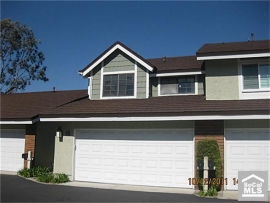
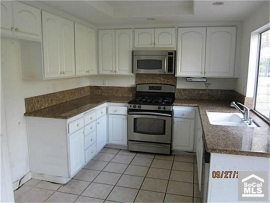




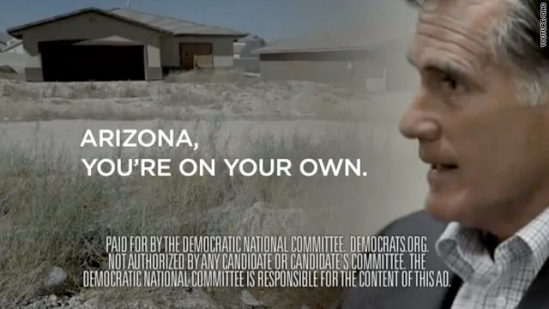



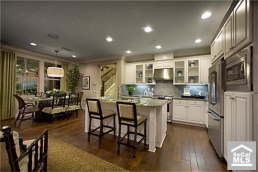
.jpg)
.jpg)

 At least they are limiting this program to the people who have been paying their bills. I think most of these people should have strategically defaulted, but if they didn't, they are being rewarded for their actions. If this program had been opened up to delinquent mortgage squatters, it would have been outrageous.
At least they are limiting this program to the people who have been paying their bills. I think most of these people should have strategically defaulted, but if they didn't, they are being rewarded for their actions. If this program had been opened up to delinquent mortgage squatters, it would have been outrageous.





.png)


 Are they joking? Lenders manage the percentage of distressed sales to within a few percentage points as they liquidate their inventory. If 32% is the lowest in the state, then we are nowhere near the end of problems with distressed inventory. The percentage distressed will remain between 32% and 35% for the next several years. I am shocked they even mentioned this.
Are they joking? Lenders manage the percentage of distressed sales to within a few percentage points as they liquidate their inventory. If 32% is the lowest in the state, then we are nowhere near the end of problems with distressed inventory. The percentage distressed will remain between 32% and 35% for the next several years. I am shocked they even mentioned this.






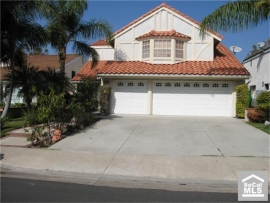
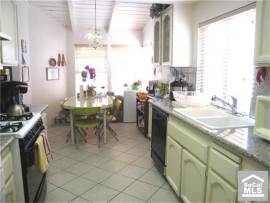









.jpg)
